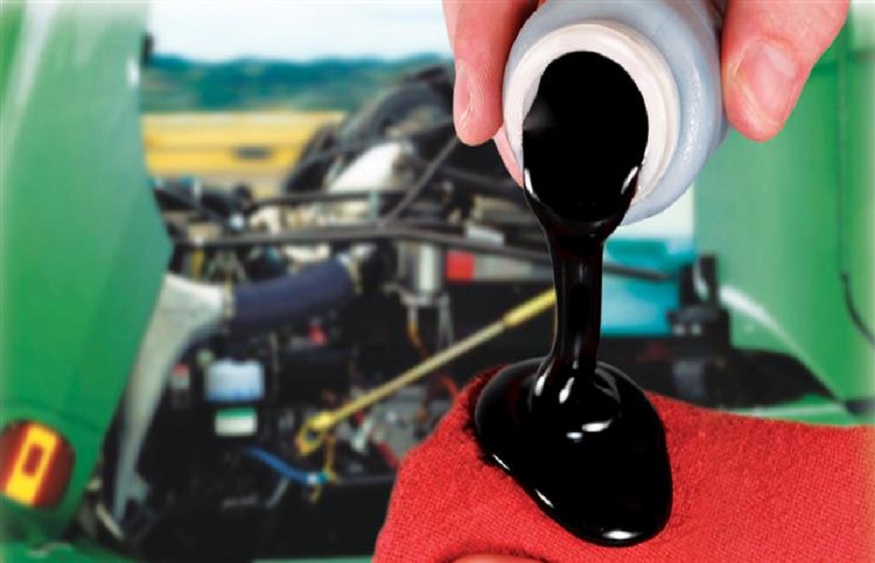When it comes to maintaining machinery, vehicles, or industrial equipment, one often overlooked hero keeps everything running smoothly—metal lubricants. These powerful substances play a crucial role in reducing wear and tear, preventing corrosion, and extending the lifespan of mechanical systems. But what do you really know about them? And how can you find the best metal lubricant for your specific needs?
This guide breaks down the basics of metal lubricants, their key benefits, and how they work. Whether you’re a seasoned professional or new to using lubricants, you’ll leave with a clear understanding of how the best penetrating lubricant can transform efficiency and performance.
What Are Metal Lubricants?
Metal lubricants are specialized substances designed to reduce friction between metallic surfaces. They act as a thin film that separates two moving parts, minimizing direct contact and the resulting damage. These lubricants come in various forms, including oils, greases, sprays, and even high-performance synthetic formulas.
Forms of Metal Lubricants
- Oils: Thin and versatile, ideal for engines and delicate parts.
- Greases: Thicker and longer-lasting, suitable for heavy-duty applications.
- Penetrating Lubricants: Specifically designed to loosen seized parts and provide deep lubrication.
Each type serves a unique purpose, making it essential to choose the right kind for your equipment’s needs.
Why Are Metal Lubricants Important?
When metal components collide, friction generates heat, leading to wear, deformation, and reduced efficiency. Metal lubricants reduce this friction, ensuring smooth operations while offering the following key benefits:
1. Prevention of Wear and Tear
Lubricants create a protective barrier that prevents surfaces from wearing down over time. By reducing direct metal-to-metal contact, they protect machinery from costly breakdowns.
2. Corrosion Resistance
Metal surfaces are often exposed to moisture, air, and other corrosive elements. High-quality metal lubricants act as a shield, repelling moisture and preventing rust or corrosion.
3. Enhanced Equipment Longevity
With proper lubrication, components perform under optimal conditions, significantly extending their lifespan. This results in fewer replacements and lower maintenance expenses.
4. Heat Dissipation
Continual operation generates heat, which, if unmanaged, can cause machinery to overheat and fail. Lubricants help dissipate this heat, keeping systems cool and efficient.
5. Improved Performance
The best metal lubricants enhance operational precision and reliability, ensuring equipment operates as intended without unexpected interruptions.
Real-World Impact
Consider a factory’s conveyor system. Without proper lubrication, its moving parts might seize, creating costly delays. But with the application of the best penetrating lubricant, these parts remain in peak working order, ensuring seamless production.
How Do Metal Lubricants Work?
Metal lubricants work through advanced formulations designed to create a physical or chemical layer between interacting surfaces. Here’s how they deliver their magic:
- Surface Separation: By coating the metal, lubricants prevent direct contact during motion.
- Reduction of Friction: This layer reduces resistance, enabling smoother movement.
- Penetration: Penetrating lubricants are particularly effective for reaching tight, hard-to-access areas.
- Protection Against Elements: A well-formulated lubricant provides a barrier against environmental threats like water, salt, or airborne contaminants.
Example of a Penetrating Lubricant
Imagine dealing with a stubborn, rusted bolt. A high-quality penetrating lubricant will seep into microscopic cracks, loosening the rust and providing an even coat of protection for future use.
How to Choose the Best Metal Lubricant
Not all lubricants are created equal. Different applications demand different formulations. Here’s what to consider when selecting the best metal lubricant for your needs:
1. Understand the Application
Is it for light use, such as bicycle chains, or heavy-duty machinery? Oils are perfect for light applications, whereas greases are best for industrial setups.
2. Consider Environmental Factors
If the equipment operates in wet or humid conditions, pick a lubricant with strong water-resistant and anti-corrosion properties.
3. Look for Longevity
Some lubricants offer extended protection, reducing the need for frequent reapplication. For tight spaces, opt for the best penetrating lubricant with long-lasting action.
4. Check for Compatibility
Ensure the lubricant matches the material and design of your machinery. Some formulations may cause damage to delicate components or seals.
5. Prioritize Quality
Reputable brands backed by industry leaders ensure consistent performance. While they might cost a little more, the investment often pays off in reliability and durability.
Pro Tip
Many professionals prefer multi-purpose lubricants to keep things simple. However, for specialized tasks (e.g., loosening rusted bolts), always choose a deep-penetrating solution to get the job done right.
The Role of Penetrating Lubricants
A standout category among metal lubricants, penetrating lubricants are designed for removing rust, loosening stuck bolts, and protecting hard-to-reach places. Here’s why they’re indispensable for professionals and hobbyists alike:
- Quick Action: Works rapidly to break down rust and free up stuck parts.
- Versatility: Useful for various applications, from household maintenance to industrial repairs.
- Deep Protection: Leaves behind a protective layer to prevent future corrosion.
If you regularly encounter rusted or frozen components, investing in the best penetrating lubricant can make your tasks exponentially easier and more efficient.
Maintaining Your Lubrication Schedule
Just like regular vehicle maintenance, industrial machinery and tools need consistent lubrication to stay in top shape. Use these tips to ensure optimal performance:
- Inspect Before Applying: Remove debris or old residue for a clean application.
- Follow Manufacturer Recommendations: Always check the usage instructions for compatibility and safety.
- Reapply When Necessary: Monitor machinery performance to determine when reapplication is needed.
Taking these proactive steps can prevent costly failures and ensure reliable operations in both professional and personal settings.
Example Timeline
Chains and wheels should be lubricated every week, while industrial machines might require lubrication every 2-4 months, depending on usage.
Elevate Performance With the Right Lubricants
From reducing wear and tear to enhancing performance, high-quality metal lubricants are indispensable in various settings. Whether you’re optimizing a home workshop or running complex industrial systems, choosing the right product is key.
Looking for the best metal lubricant or a reliable best penetrating lubricant? Browse trusted options from leading brands to unlock the full potential of your equipment.
Invest in quality lubrication today—and watch your machinery thrive tomorrow.



